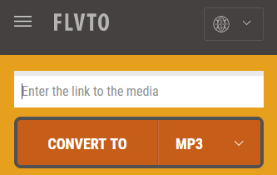Stream-Ripping: What Are YouTube, Spotify & Deezer Doing About it?
dimanche 14 avril 2019 à 08:38
“Stream ripping, which is the process of creating a downloadable file from content that is available to stream online, is now the most prevalent form of online music copyright infringement,” music group IFPI declared in 2017.
The statement was in response to the shutdown of once-leading YouTube-ripping site YouTube-MP3, which previously helped millions of visitors convert videos into downloadable MP3 tracks, to the detriment of artists, according to IFPI.
But despite the fall of this giant, stream-ripping is still very high on the music piracy agenda. Where torrent sites and file-sharing applications were once the primary targets for legal action, stream-ripping sites now appear to be more of a concern for record labels everywhere.
In 2018, a group of major record labels with assistance from the RIAA targeted two of the larger stream-rippers that remained online following YouTube-MP3’s demise.
FLVTO.biz, 2conv.com, and their owner Tofig Kurbanov were sued for copyright infringement at a Virginia District Court. The case was dismissed since there was no evidence they targeted the United States. The labels quickly appealed, so the case continues. Similar platforms collapsed more quickly.
But the big elephant in the room is why the labels aren’t (to coin a well-worn piracy phrase) trying to cut off the head of the hydra? These ‘ripping’ sites aren’t the source of the content because
Equally, when people access platforms like Spotify and Deezer using readily available tools and services to rip MP3s to their own hard drives, why aren’t the leaks getting plugged by those respective companies?
This week, TorrentFreak asked all three services for their opinions on stream-ripping and why the phenomenon is still a problem, not only for the record labels but also for them. After all, everyone involved loses revenue when users don’t return to a streaming service for repeat performances of musical works.
“We are deeply committed to ensuring YouTube is not a home for copyright-infringing content and have invested significantly in teams and technology to combat this issue,” a YouTube spokesperson told TF.
“YouTube’s Terms of Service prohibit the downloading or copying of videos without the prior written consent of YouTube or the respective copyright licensor, and we take technical steps to prevent this behavior.”
Given the size and relatively open nature of the YouTube platform, it’s no surprise that the Google-owned company is at the center of the stream-ripping controversy. But ripping from YouTube is only part of the problem.
Premium and ad-supported services such as Spotify and Deezer are also targeted by people ripping streams directly to their machines. In these cases, third-party platforms aren’t even necessary since readily-available user-side tools to do the work.
Both companies have taken action in the past (including using technical means and via DMCA notices (1,2,3) against circumvention tools) but we were keen to hear about the problems from the companies themselves.
Unlike YouTube, which responded extremely quickly, both Spotify and Deezer failed to respond to our requests for comment, so we remain in the dark on the companies’ policies and whether or not they intend to tighten the noose moving forward.
PRS for Music is a UK organization that pays royalties to its members when their content is performed, broadcast, streamed, downloaded, reproduced, played in public, or used in film and TV.
In July 2017, PRS published a report (which in part relied on data supplied by anti-piracy firm MUSO)
However, more recent data supplied by MUSO to TorrentFreak suggests that the use of stream-ripping services might be on the wane. In January 2018, the company logged 743.6 million visits to stream-ripping platforms but by January 2019, that figure had decreased to 589.4 million visits.
It should be noted some popular ‘ripping’ platforms, such as the 200 million visits per month OnlineVideoConverter, have
Quite why this is the case isn’t clearly defined but IFPI’s recently published Global Music Report 2019 may contain a few subtle hints. The group reported that total revenues for 2018 were US$19.1 billion, a music market growth of 9.7%. And legal streaming played a huge part.
“Streaming revenue grew by 34.0% and accounted for almost half (47%) of global revenue, driven by a 32.9% increase in paid subscription streaming,” IFPI reported.
“There were 255 million users of paid streaming services at the end of 2018 accounting for 37% of total recorded music revenue. Growth in streaming more than offset a 10.1% decline in physical revenue and a 21.2% decline in download revenue.”
Whether or not former stream-ripping users are now choosing to “go legal” will remain to be seen but in the meantime, it’s clear the record labels consider the activity to be unacceptable
In a statement, the BPI told TorrentFreak that music fans often don’t realize that by ripping music from YouTube “they are also ripping off artists” while also helping stream-ripping services to break the law.
“Stream ripping deprives artists and the creative businesses that invest in their talent of significant
“The music industry is letting music fans know
YouTube, for its part, says it is doing all it can to prevent people from ripping content from its site.
“Once notified of an infringing tool or service that violates our Terms of Service, we take action, including disabling access to the YouTube API. In addition, we work with the music industry to identify and respond to stream ripping entities,” the company told us.
So at least for now, stream-ripping remains a problem for the music industry but with greater uptake of comprehensive and reasonably-priced legal alternatives, the decline in their use could be set to continue.
Some people argue that there’s nothing better than having permanent MP3 files on their own machine, particularly when they come for free. Those files can’t be taken away, at the whim of a label or delivery platform.
But for the most part, interaction with huge local MP3 libraries (unless downloaders put in considerable labeling and organizational effort) offers a second-rate experience, crucially lacking in advanced discovery methods.
In addition to the music, of course, perhaps it is the developing curation systems of legal services that are attracting consumers to today’s legal offerings? If so, that, in turn, will lead to a natural decline in use of ripping services because, quite frankly, they aren’t known for being particularly innovative.
So that brings us to the conclusion that whether or not technical measures are put in place to prevent their operation, stream-ripping services will continue to be out-classed by their legal rivals. They may be free but at some point, an outstanding user experience will become the irresistible draw.
Source: TF, for the latest info on copyright, file-sharing, torrent sites and more. We also have VPN reviews, discounts, offers and coupons.




 This is the second and final part of our interview with
This is the second and final part of our interview with